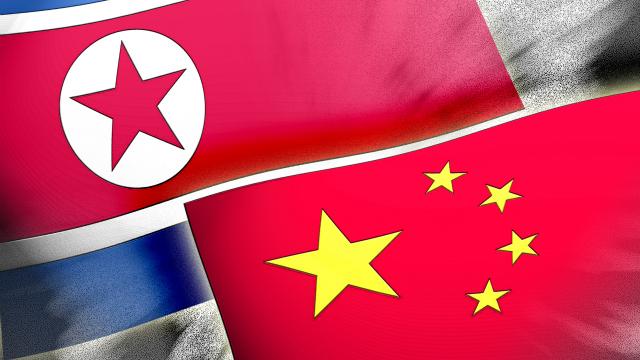Chinese Advisors: War may be inevitable
December 18, 2017 | Expert Insights

China has traditionally been a key ally to North Korea and viewed by many as the key to a peaceful resolution in the on-going stalemate between the now nuclear-armed North and the U.S. along with its regional allies South Korea and Japan. However, it appears that among some parties, hopes for a de-escalation of tensions in the Korean Peninsula are rapidly fading.
Background
From the time of its formation at the end of the Korean war in the early 1950s, China has been North Korea’s most important ally, as well as its principal trading partner, with the majority of North Korean exports, mainly in the form of coal and seafood, finding markets across the border in China.
However, as China has grown and sought to increase its influence in the world, becoming a major economic and political force on the world stage, its once warm relationship with its eastern neighbor has become increasingly strained over the years. Where China once occupied a position of significant power and influence over North Korea, its newest leader, Kim Jong Un has made several moves to assert his own independence, shift the traditional balance of power in China – North Korean ties and, on more than one occasion, snub Chinese leadership. This has led to a marked cooling of diplomatic ties between the countries and put considerable strain on their relations.
Analysis
Speaking to reporters at a conference in Beijing, Shi Yinhong, who advises China’s senior leadership said that conditions in the region were deteriorating rapidly and that the threat of a major conflict was higher now than it has been in decades.
Alluding to his belief that the point at which an armed confrontation between North Korea may now be a matter of ‘when’ and not ‘if’ Shi went on to describe the situation as being similar to a time-bomb, where it may be possible to delay detonation, but only temporarily. This outlook was tempered however by stating that if it was possible to delay a confrontation for long enough, it may be possible to buy enough time for cooler heads to prevail and prevent what threatens to be a major flashpoint for a nuclear conflict.
And Shi is not alone in his pessimistic outlook for a possible war, speaking at the same conference Wang Hongguang, a former deputy commander of the PLA warned that the threat of war is, and would remain, extremely high in the immediate future, particularly during the ongoing joint military drills that the U.S. is conducting with Japan and Korea will only conclude in March next year.
China has blamed the U.S. approach of applying ‘maximum pressure’ to North Korea for the continued escalation of tensions, saying that this strategy had essentially hardened Pyongyang’s resolve and served only as a reaffirmation of their previously stated reasons for securing a nuclear arsenal. i.e. the deterrence of foreign aggression, particularly the United States and its partners.
Assessment
Our assessment is that despite the deterioration of relations between Beijing and Pyongyang, should the U.S. and its allies launch an attack on North Korea, China would be forced to come to the defense of a fellow communist state; to not do so would send the wrong message to the Chinese people. At the same time, it is likely that China will avoid committing fully to the fight and will instead work to establish a ceasefire as quickly as possible while preventing regime change in North Korea.
However, should the North Koreans decide to be the aggressors and launch a pre-emptive strike against the U.S. and/or its allies, the Chinese may choose to remain neutral to avoid getting dragged into a difficult and costly conflict. There are currently many fault lines in both the Chinese economy and society and Beijing would not want risk getting into any protracted conflict.








Comments